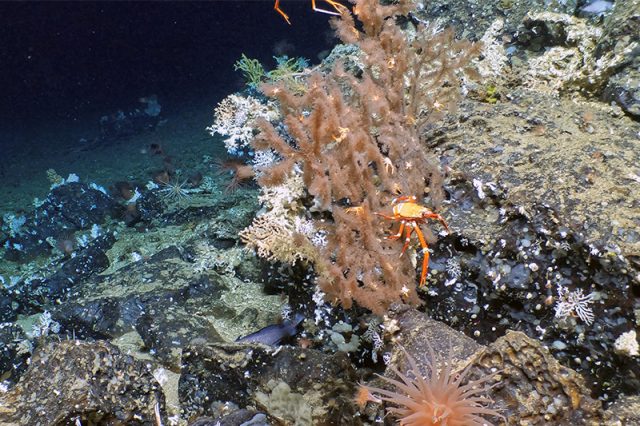New coral reef discovered in Ecuador’s Galapagos Islands

SPONSORED ARTICLES
QUITO— A scientific expedition has discovered a previously unknown coral reef with abundant marine life off Ecuador’s Galapagos Islands, the country’s environment ministry said on Monday.
“A deepwater scientific expedition has found the first totally pristine coral reef, approximately two kilometers (1.2 miles) long, at 400 meters (deep), on the summit of a submarine mountain,” Environment Minister Jose Davalos said on Twitter. “Galapagos surprises us again!”
Scientists had believed that the only Galapagos reef to survive El Nino weather in 1982 and 1983 was one called the Wellington reef, along the coast of Darwin Island, but the new discovery shows other coral has persisted, the ministry said in a statement.
The reef has more than 50% living coral.
“This is very important at a global level because many deepwater systems are degraded,” said Stuart Banks, senior marine researcher at the Charles Darwin Foundation, who participated in the expedition. The coral is several thousand years old at least, he added.
The South American country last year expanded the Galapagos marine reserve by 60,000 square km (23,166 square miles), an extension of the 138,000 square km already in place, to protect endangered migratory species between the Galapagos and the Cocos Island in Costa Rica.
The Galapagos, which inspired Charles Darwin’s theory of evolution, are also home to giant tortoises, albatrosses, cormorants and other species, some of which are endangered.
—Reporting by Alexandra Valencia; Writing by Julia Symmes Cobb; Editing by Rosalba O’Brien
New coral reef discovered in Ecuador’s Galapagos Islands
Source: Political Elections PH
Walang komento